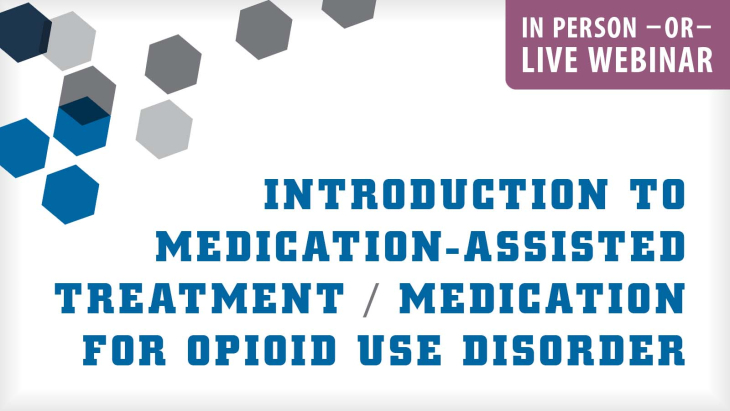Introduction to Medication-Assisted Treatment / Medication for Opioid Use Disorder

Location
Dates & Times
Contact
Do you have event related questions or need help with registration?
In the collective effort to reduce the opioid overdose crisis in North Carolina, MAHEC provides the Medication-Assisted Treatment (MAT) 101 training in order to share best practices in the treatment of opioid use disorders. The program begins with an overview of the current state of the opioid overdose crisis on both a national and local level. Participants will gain knowledge on the CDC guidelines for the treatment of acute and chronic pain and the efficacy of non-opioid treatment modalities. The presentation outlines the origins of substance use disorders and the use of various medication-assisted therapies for the treatment of opioid use disorders (OUD) specifically. Lastly, the presentation ends with a discussion of how healthcare providers can address the bias and stigma associated with substance use disorders and the importance of using harm reduction strategies, such as naloxone distribution, in the treatment of patients with substance use disorders.
This program was designed to satisfy, in part, The North Carolina Medical Board's CME requirement for controlled substance prescribers. Per NCAC rules: As of July 1, 2017 all physicians (other than residents), physician assistants, nurse practitioners, podiatrists, and dentists who prescribe controlled substances must satisfy the controlled-substance prescribing CE requirements as set forth by their licensing boards; requirements vary by discipline and board.
MAHEC engages in evaluation activities to better understand the impact of our programs. By registering for this course, you agree that we may use your personal information in evaluative research regarding this program. Any reports published will be de-identified and reported in aggregate format.
If this date does not work for your schedule, this course is also offered on:
November 8th, 2022 at noon
March 7th, 2023 at 6 pm